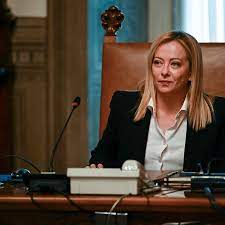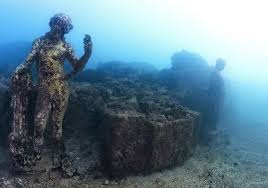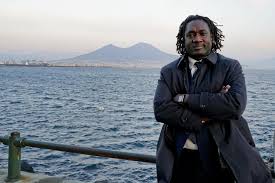People familiar with Giorgia Meloni describe her as a careful student of whatever problem enters the agenda.

Mr. Berlusconi’s record as a head of government is quite poor. Except for easing labor market restrictions, no major reform was accomplished under his watch. Yet Mr. Berlusconi’s rhetoric, if not his practice of government, alluded to a set of actions that were certainly needed in Italy back then as now: deregulation, lowering and simplifying taxes and opening markets.
Now it is far more difficult to see what the right stands for. Mr. Salvini built his success around the fear of inordinate immigration. He seemed not to be capable of adjusting to different priorities. Ms. Meloni is a far more complex politician and a better-read one. People familiar with her describe her as a careful student of whatever problem enters the agenda.
She comes from a political tradition that is corporatist and rooted in the south of the country: the less enterprising part of Italy. Yet in the latest elections, her party – Fratelli d’Italia (the Brothers of Italy) was the first party in Veneto, the region where the Northern League used to be stronger, winning votes particularly among small businesspeople. Her personal credibility allowed her to change her electoral base. Once the leader of the most “southern” of Italian parties, now she leads the one which won bigger in the north.
Ms. Meloni has a strong personal leadership quality and knows the game she is playing well. Her coalition is made of partners used to each other. This could mean that she can reverse the curse of Italian politics. In Rome, a government lasts on average 14 months.
To achieve that goal, however, Ms. Meloni will have to withstand external and internal challenges.
The external challenges reflect the bewilderment with which her victory was greeted by foreign leaders, including United States President Joe Biden and European Commission President Ursula von der Leyen. Born in 1977, Ms. Meloni is no fascist, but she was depicted as such by the international press. Her positions are nonetheless eccentric to the international elite: she is a proud Catholic in irreligious times and she is more of a communitarian than a globalist. Yet her personal story is powerful (an example of meritocracy), and she has a talent for coming across to even skeptics as serious and thoughtful. The late French President Jacques Chirac famously dismissed Mr. Berlusconi as a “buffoon.” That would be hard to do with Ms. Meloni.
Hence, her international trip to the G20 meeting in Bali was a success and Ms. Meloni is investing a considerable amount of time in international travel, trying to rapidly establish a reputation for herself and reassure international partners. Her continuous emphasis on her commitment to supporting Ukraine against Russia’s war fits the same bill.
Italian Prime Minister Giorgia Meloni meets NATO Secretary Jens Stoltenberg on November 10, 2022, in Rome. Ms. Meloni has repeatedly stressed her new government’s unconditional support for NATO and for Western sanctions against Russia and military aid for Ukraine in its war against Moscow.
The internal challenges are due to two different but converging issues. One is the fact that Ms. Meloni’s government does not have an obvious economic policy. The other is a more difficult relationship with allies than expected, which amounts to a political time bomb. Ms. Meloni’s problem, in short, is the poor performance of Mr. Salvini’s Northern League in the September elections. His party got 9 percent of the vote, and Forza Italia 8 percent. The two parties’ electoral strength put together is less than Mr. Meloni’s coalition.
Forza Italia, 30 years after its founding, is still a personal party whose fortunes are intertwined with those of Mr. Berlusconi. Though he led a successful electoral campaign, doubling the vote forecast by opinion polls and, rather unexpectedly, proving a master of new media like TikTok, Mr. Berlusconi looks the 86-year-old he is and seemed unable to manage daily politics. This breeds uncertainty in his own party.
Mr. Salvini, on the other hand, is energetic and young and willing to do whatever it takes to regain the votes he lost. Ms. Meloni pleased him by awarding him a good chunk of important ministries, from the Ministry of the Economy (Giancarlo Giorgetti) to Education (Giuseppe Valditara) to the infrastructure portfolio that Mr. Salvini kept for himself. Clearly, Ms. Meloni wanted to engage him as much as possible in government. Keep your friends close, and your enemies closer, as the saying goes.
Yet Mr. Salvini is already showing that his strategy is to double down on whatever the government does. This creates tensions, particularly in the matter of economic policy and public finance. The days of the supply-side rhetoric of Mr. Berlusconi are long gone. Over the years, Mr. Salvini has been a champion of higher spending, regardless of the rationale of individual expenditures. In the electoral campaign, Ms. Meloni, despite not having a particularly fiscal conservative background, has preached the gospel of prudence.
Ms. Meloni has no clear economic policy and whatever she decides to do will need to go through a complex bargaining process.
Mr. Salvini’s pick for economy minister, Mr. Giorgetti, was the minister of industry under Mr. Draghi. He has a reputation for independent thinking and moderation. He is also credited with intermittent skepticism of Mr. Salvini’s own leadership. Mr. Giorgetti’s first budget law will create a slightly higher deficit than expected (4.5 instead of 3.5 percent). The details include some revisions of public spending, particularly for those measures introduced during the pandemic. Bravely, the government is challenging the Italian version of the basic income, implemented by the Giuseppe Conte government, by changing its architecture and entrusting it to municipalities that will be able to discern deserving recipients better than National Institute for Social Security. Yet, the higher budget deficit suggests the new government is not starting by tightening spending, which is what one would expect at the beginning of a new parliamentary term.
In the electoral campaign, Ms. Meloni often said that she believes in a government that does not hinder those who are willing to engage in economic activity. Some of the initiatives the government is contemplating, like raising the ceiling for cash payments, would increase the economic freedom of individuals and businesses. Yet most of her advisors are instead hinting at new nationalizations, which may include the telecoms network.





